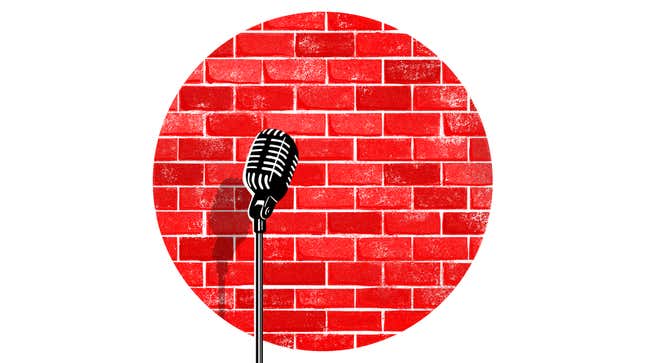Herpes Was the Best Thing to Happen to My Stand-Up Career
Latest

Any good comedian knows that if there is something you hate about yourself (or rather when, for otherwise you wouldn’t be a comedian), you turn it into a joke.
Plenty of comedians perform bits about herpes, but often at someone else’s expense. It’s low hanging fruit—as easy, you could say, as comparing a man’s testicles to low hanging fruit. I’ve lost track of how many insecure guys I’ve seen recount sexual encounters at an open-mic, saying something along the lines of, “This girl was gross. And I mean, gross. Like, riddled with herpes gross.” The audience pictures her. Trashy, loose, unkempt.
This is a stereotype that I, unfortunately, also used to subscribe to—until one shitty day three years ago, when I woke up with a painfully swollen, blistered vagina. Overnight, I had become “that girl.” How the hell did that happen? I had done everything right. Responsible sex, monogamous relationship. I graduated from college! I called my grandmother voluntarily! And yet there I was, legs in the air in an exam room, being informed that I was, in fact, a person with herpes.
My boyfriend was shocked, since he never exhibited symptoms. He accused me of cheating on him, of lying to him, and made me feel gross about myself. He also convinced me that because of my newfound STD, we would be together forever—who else would ever love me? At the time, filled with shame and self-loathing, I believed him. If I couldn’t stomach this part of myself, how could anyone else? I locked away my secret, discussing it with nobody but my dickhead boyfriend. Our relationship disintegrated pretty quickly.
I was doing stand-up every night at the time in New Orleans, although not well. My jokes were just jokes, which, like many elements of writing, are just a formula; once you crack that formula, you can make one up about anything. Setup, punchline. Setup, punchline. You become a machine. What I failed to understand at the time was that joke writing is only one—and arguably not the most important—part of stand-up. Your jokes are merely a delivery system for your experiences, your memories, your opinions. The audience has to grasp who you are not only as a performer, but as a person. Good stand-up requires vulnerability.
-

-

-

-

-

-

-

-

-

-

-

-

-

-

-

-

-

-

-

-

-

-

-

-

-

-

-

-

-

-

-

-

-

-

-

-

-

-

-

-








































